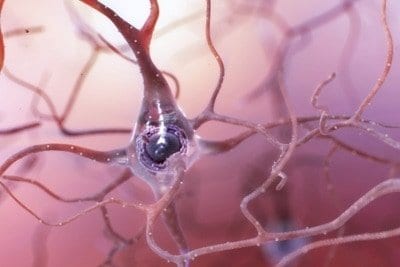Neurogenesis—the process of forming new brain cells—appears to continue in people well into old age, according to a recently published study funded in part by the NIA. Using proxy makers of neurogenesis in the hippocampus, the area of the brain responsible for learning and memory, researchers looked at post-mortem brain tissue from 18 people ages 79 to 99. They found evidence that new neurons developed even in people with mild cognitive impairment (MCI) and Alzheimer’s disease.
Although neurogenesis in the adult brain in animal models has been well documented, the evidence of new brain cell growth in humans has been mixed. Writing in the journal Cell Stem Cell, the researchers suggest that despite debate on whether human brain cell growth can happen after adolescence, their new study indicates hippocampal neurogenesis does persist later in life and may be associated with cognition.
Of the 18 samples, six of the donors had been cognitively normal, six had MCI, and six had been diagnosed with Alzheimer’s-type dementia. The research team took sections of the hippocampus and stained them for markers of stem cells called neural progenitor cells (NPCs) and new neurons, then used MRI data to estimate neurogenesis. The samples were from the NIH-funded Rush Memory and Aging Project.
The researchers found an average of about 2,400 NPCs per brain. They also found an average of 130,000 developing neurons. Analysis of a subset of the developing neurons showed that the number of proliferating developing neurons was significantly lower in people with MCI and Alzheimer’s disease suggesting a lack of neurogenesis may promote or exacerbate cognitive impairment.
Interestingly, the researchers did not see an association between neurogenesis and levels of amyloid plaques and tau tangles, two of the hallmarks of Alzheimer’s disease. The researchers noted that additional research is needed to better understand adult neurogenesis, its role in cognition, and the association with MCI and Alzheimer’s disease.
This research was funded in part by NIA grants AG033570, AG060238, AG062251, AG061628, AG17917, and AG34374.
Reference: Tobin MK, et al. Human hippocampal neurogenesis persists in aged adults and Alzheimer’s disease patients. Cell Stem Cell. 2019;24(6):974-982.e3. doi: 10.1016/j.stem.2019.05.003.

